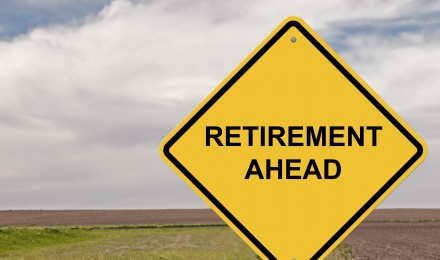If you’re only ten years from retirement, then it’s high time for you to figure out how much you will need to be saving for retirement and focus on accumulating that amount if you haven’t already done so. Time is running out on your opportunity to get any matching contributions that your employer offers for your retirement plan deferrals and to reap long-term growth in your portfolio. But there are several other issues to consider at this point as well, such as debt and college expenses for children.
Fuel Your Contributions
If you’ve been slacking off on your retirement contributions because of other expenses, then you should start taking advantage of the extra contributions that are allowed for those over age 50. You can contribute an extra thousand dollars per year to a traditional or Roth IRA and also an extra $5,500 into your employer-sponsored qualified plan (in 2012). Use these concessions to beef up your retirement portfolio while you can.
Evaluate Your Portfolio
If you haven’t checked the performance of your retirement portfolio in a while, this is the time to take a careful look at how your money is growing. If your assets are on track to do what you want them to, then you may be wise to leave things as they are. But for many people, it is probably time to start shifting their assets out of equities and into more conservative holdings such as bonds, mortgage-backed securities and cash. Of course, you will not want to eliminate stocks from your savings completely, because you still need to have a hedge against inflation in your portfolio for some time to come. But at least half of your assets should probably be in something other than equities by the time you stop working unless you are an experienced investor who is comfortable taking more risk.
Managing Debt
If you still have decades to go on your mortgage, it may be wise for you to refinance to a shorter term loan if you plan on remaining in your current residence after you retire. Interest rates are at historic lows, so changing to a 15-year note may be a good idea right now, because the lower rate may offset the shorter time frame. And if you have any high-interest debt, such as credit cards or car loans that are outstanding, you should also concentrate on eliminating those before you stop working. It is much easier-and simpler-to retire when you have no debt; if you have to keep making payments on your debt after you stop working, you may be forced to live low for a long time to come. For more information on saving for retirement, visit the following links or consult your financial advisor.
If you’re only ten years from retirement, then it’s high time for you to figure out how much you will need to be saving for retirement and focus on accumulating that amount if you haven’t already done so. Time is running out on your opportunity to get any matching contributions that your employer offers for your retirement plan deferrals and to reap long-term growth in your portfolio. But there are several other issues to consider at this point as well, such as debt and college expenses for children.
Fuel Your Contributions
If you’ve been slacking off on your retirement contributions because of other expenses, then you should start taking advantage of the extra contributions that are allowed for those over age 50. You can contribute an extra thousand dollars per year to a traditional or Roth IRA and also an extra $5,500 into your employer-sponsored qualified plan (in 2012). Use these concessions to beef up your retirement portfolio while you can.
Evaluate Your Portfolio
If you haven’t checked the performance of your retirement portfolio in a while, this is the time to take a careful look at how your money is growing. If your assets are on track to do what you want them to, then you may be wise to leave things as they are. But for many people, it is probably time to start shifting their assets out of equities and into more conservative holdings such as bonds, mortgage-backed securities and cash. Of course, you will not want to eliminate stocks from your savings completely, because you still need to have a hedge against inflation in your portfolio for some time to come. But at least half of your assets should probably be in something other than equities by the time you stop working unless you are an experienced investor who is comfortable taking more risk.
Managing Debt
If you still have decades to go on your mortgage, it may be wise for you to refinance to a shorter term loan if you plan on remaining in your current residence after you retire. Interest rates are at historic lows, so changing to a 15-year note may be a good idea right now, because the lower rate may offset the shorter time frame. And if you have any high-interest debt, such as credit cards or car loans that are outstanding, you should also concentrate on eliminating those before you stop working. It is much easier-and simpler-to retire when you have no debt; if you have to keep making payments on your debt after you stop working, you may be forced to live low for a long time to come. For more information on saving for retirement, visit the following links or consult your financial advisor.







